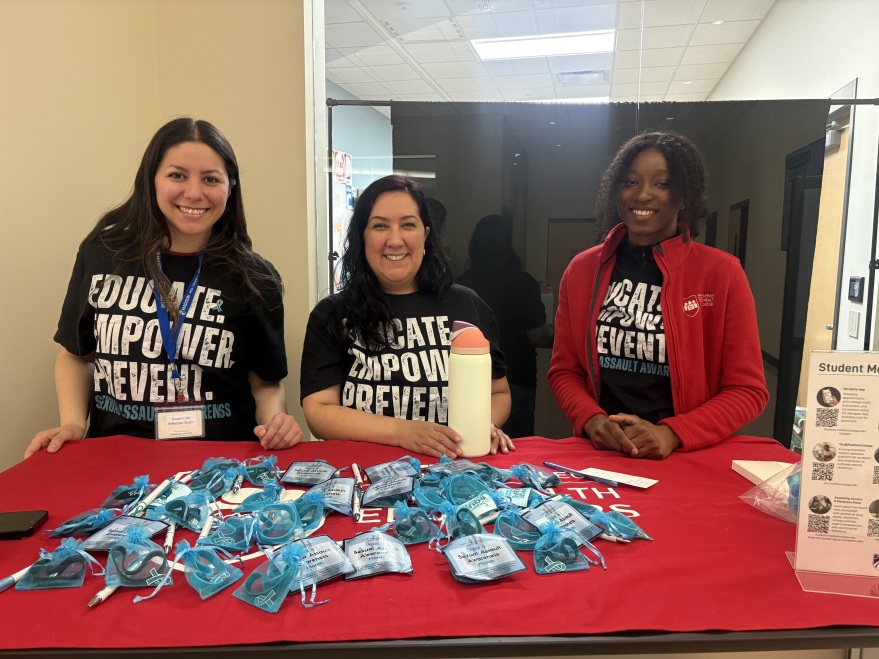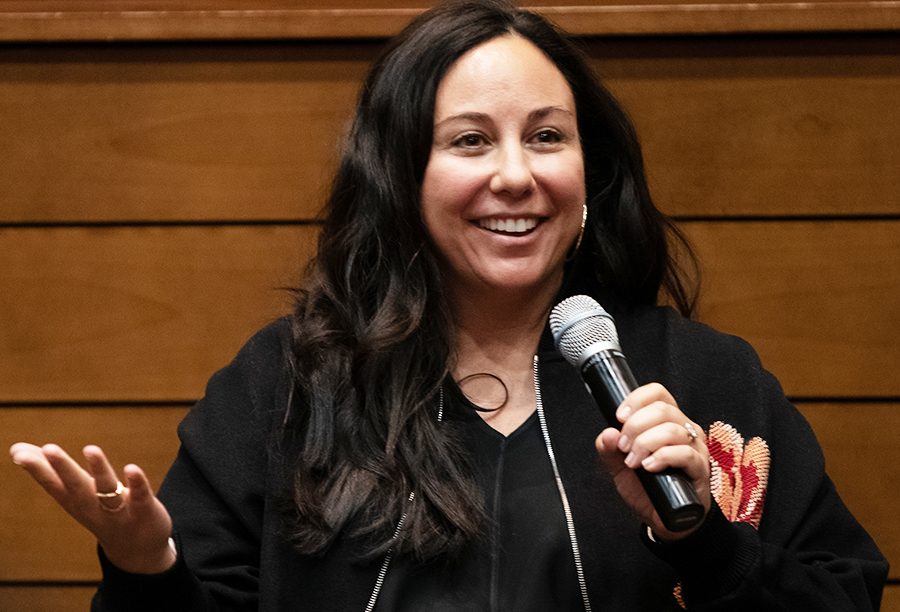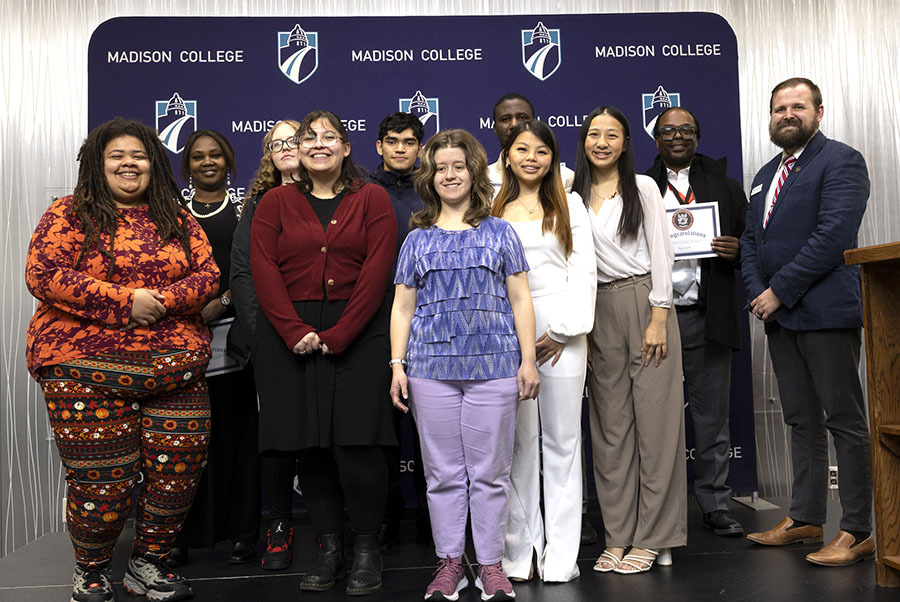Filmmaker discusses ‘Southern Rites’ at UW presentation
Filmmaker Gillian Laub answers questions from a moderator during a recent presentation on her film “Southern Rites” at UW’s Union South
April 23, 2019
Gillian Laub visited Madison to premier her film as a part of a traveling exhibit. The issue of racism in the south is the basis of the film “Southern Rites,” shown at UW-Union South the HBO film was directed by Laub who was available for a Q&A after the film.
Laub graduated from the University of Wisconsin, Madison, with a degree in Comparative Literature and studied photography at the International Center of Photography.
The film opens with photos of students attending the “White Folks Prom” and the “Black Folks Prom” taken by Laub. But the issue of segregated proms was only the beginning of Ms. Laub’s documentary work in Mt. Vernon, GA.
On Jan. 29, 2011, a 22-year-old African American man named Justin Patterson was shot and killed by a 62-year-old white man, Norman Neesmith. The film plays the entirety of the 911 call placed that night by Neesmith after he shot Justin Patterson. During the call, we hear him say, “I shot him.” The 911 operator says, “Shot who?” Neesmith responds, “Just a black boy.” When asked what the injured male was wearing, Neesmith says, “Baggy britches, the way they do.”
Laub returned to Mount Vernon many times. For her film, “Southern Rites,” she interviewed the shooter, Neesmith. In the film, we hear him saying, “I ain’t never been scared,” though his defense was using self-defense as a reason for the shooting. The District Attorney’s office offered him a plea deal, unbeknownst to the family of Justin Patterson. Neesmith’s lawyer speculates that the DA offered the plea deal because the position of District Attorney is an “elected position” and “Mr. Neesmith had a lot of supporters.”
While Neesmith was originally charged with seven counts, including murder and kidnapping, his plea deal only asked him to plead guilty to involuntary manslaughter and reckless conduct; the DA recommended a sentence of one year in a detention center.
The film shows Justin Patterson’s family, including his three-year-old daughter. His mother, Dedee Patterson, spoke with Laub on camera about her son. Both of her sons, Justin and Sha’von were at Norman Neesmith’s house that fated night.
Neesmith’s adopted daughter, Danielle had recently reconnected with Justin via Facebook and invited Justin and his brother, Sha’von, over to her house that night. While marijuana and sexual activity were issues, Justin’s family maintains that the kids were just being kids.
Upon waking up to two (black) men in his house with his daughter and her friend, Neesmith grabbed the 22 pistol that he kept next to his bed and ordered the two men to sit on the couch. Fearing for their lives, Sha’von took off running and Justin followed. They struggled to unlock the door. Mr. Neesmith shot once but missed.
His second shot was aimed at Sha’von, but Sha’von says that Justin took the bullet for him. The two made it out the door and ran. Neesmith fired two more times from his porch. Neither of the bullets hit Justin nor Sha’von, but Justin was wounded and dying quickly. He told his brother to run and leave him. Sha’von ran to call their mother. Justin died.
The judge, in a courtroom segregated by color by sides, agreed with the DA’s suggestion and sentenced Norman Neesmith to one year in a detention center.
Today Norman Neesmith walks a free man. In the film, he discusses the horrible effect the whole situation had on his life. When asked what he would say to the Patterson family if he could say anything, he replies, “I don’t know.”
Danielle Neesmith, Norman’s adopted daughter hasn’t been home to see her dad since he was released from the detention center. Danielle says, “I still have nightmares… I can’t let it go. I can’t stay in that house anymore. I’m glad I can’t go home.”
She concludes by saying, “If I could take it all back, I would… I feel like it’s my fault.”
“Southern Rites” began as a way to show the world what was happening in Mt. Vernon, GA. It began by showing that segregation still existed in the 21st century in the form of segregated proms in the deep south. But a much more complicated story unfolded.
The story of a black man being shot by an older white man. The story of fear. The right to bear arms. The story of how the justice system is flawed in many ways. The story of a town, no longer segregated, but still racially divided. “Southern Rites” is, at its core, the story of America today; a country where children of all races grow up together, but still full of racism.
In the Q&A following the film, Laub said that she knew she was a storyteller, but learned, because of her studies at the UW, that images were her medium, not words. Her storytelling is on full display in her film and photography. The exhibit showing Laub’s photography and more, can be seen at The Chazen on the UW Campus.
Laub’s documentary and first film can be seen on HBO as “Southern Rites.” Her photography can also be found in a book by the same name.
































